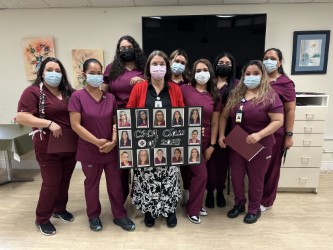Tips to Avoid Zika During Mosquito Season
- Category: Health & Wellness
- Posted On:
- Written By: SBC Public Health Department
While it may seem like spring has just begun and medical professionals throughout Santa Barbara County are preparing for a summertime influx of mosquitos – and potential health-related problems.
The Santa Barbara County Public Health Department is offering residents steps they can take to protect themselves from the Zika virus and other infections spread by mosquitos – especially during the busy summer travel season. Even though the type of mosquito that carries Zika has not been found in Santa Barbara County, people are warned that the virus does spread via bites from infected mosquitos.
Zika can also be passed through sex, even if the infected person does not have any symptoms, and a pregnant woman who is infected can pass the infection to her baby. No cases of Zika transmission have been reported through breastfeeding or blood transfusion in the U.S.
As of April 14, California has had 533 confirmed infections, all of which were travel- related. As of April 12, the county Public Health Department laboratory has processed 320 samples for Zika testing, including 82 from pregnant women. Eight have tested positive, including one from a pregnant woman. One additional sample from a pregnant Santa Barbara County resident tested positive in another county. The first case in a Santa Barbara County resident occurred last August.
Overall, nearly 5,200 cases of Zika disease have been reported in the U.S. between January 1, 2015, and April 12, 2017. Almost all (94 percent) were in travelers returning from affected areas, including Africa, Asia, the Pacific Islands, Central and South America, the Caribbean, and Mexico. Maps of affected areas can be found at www.cdc.gov/zika/geo/index.html.
“We have unfortunately had several county residents become infected with Zika virus,” said Dr. Charity Dean, Santa Barbara County Health Officer. “All of these cases were related to travel, and there is currently no risk of contracting Zika from infected mosquitoes in Santa Barbara County. However, we encourage you to remain cautious and to take steps to protect yourself from mosquito bites.”
Many infected persons will not have any symptoms or will have only mild symptoms. Common symptoms include fever, rash, headache, joint pain, eye redness, and muscle aches. No specific treatment is available, and symptoms resolve on their own in a few days to a week.
The greatest concern is for unborn babies when the pregnant mother is infected with Zika. In these situations, the virus can cause small head size (microcephaly), brain damage and
congenital Zika syndrome that includes brain abnormalities, eye defects, hearing loss, and limb defects. Among pregnant women with confirmed Zika infection in the U.S. in 2016, about 1 in 10 had a baby with birth defects. The risk is greatest during the first trimester. In Santa Barbara County, there have been no reported cases of birth defects in babies born to infected mothers to date.
If you have symptoms of Zika infection and have visited an affected area or had unprotected sex with someone who has visited an affected area, see your healthcare provider. This is particularly important if you are pregnant. Zika can be diagnosed with a blood or urine test.
There is currently no vaccine for Zika, although research is being done in this area. The Centers for Disease Control and Prevention (CDC) and the SBCPHD recommend the following steps to protect yourself and your family from Zika and other diseases spread by mosquitoes:
- If you are pregnant or planning a pregnancy, do not travel to affected countries. If you must travel, speak with your healthcare provider first.
- If you travel to affected areas, use mosquito repellent while abroad and for 3 weeks after returning. In addition, use condoms with sexual activity while abroad and for at least 8 weeks (women) or 6 months (men) after returning.
- Protect yourself and your family from mosquito bites: Use EPA-registered insect repellents containing DEET, picaridin, oil of lemon eucalyptus, or other approved active ingredients
- Do not apply repellent to babies younger than 2 months old. Do not apply to a child’s hands, eyes, or mouth.
- If you are also using sunscreen, apply sunscreen first and repellent second
- Wear long-sleeved shirts and long pants
- For additional protection, clothing can be treated with permethrin.
- Take steps to control mosquitoes inside and outside your home
- Use air conditioning and screens on windows and doors. Sleep under a mosquito net if these are not available.
- Empty standing water weekly from containers such as flowerpots, buckets, and birdbaths (mosquitoes need water to grow)
The SBCPHD is working closely with state and federal agencies to monitor the evolving Zika situation. SBCPHD provides updates and testing recommendations to local health care providers and coordinates information with the Mosquito and Vector Management District of Santa Barbara County. Please report mosquito problems, particularly aggressive daytime biting mosquitoes to the Mosquito and Vector Management District. If you have any concerns, visit your healthcare provider.






